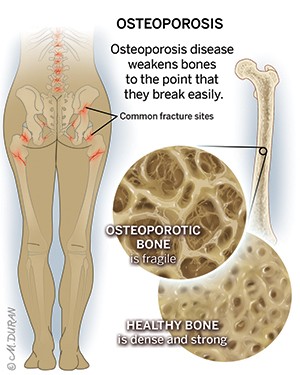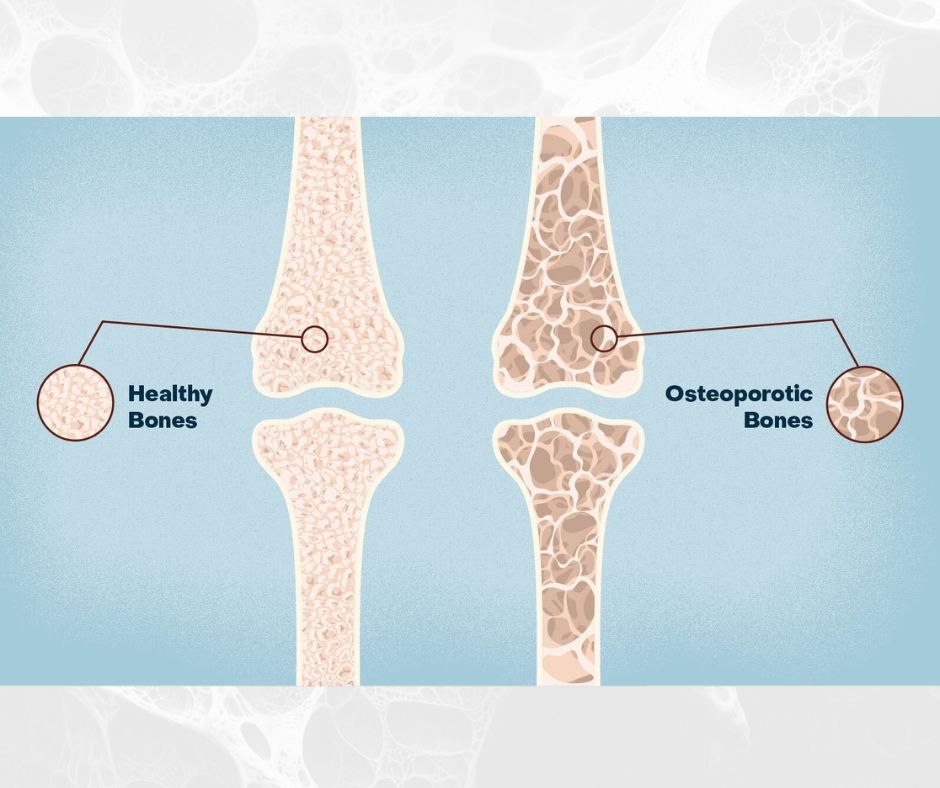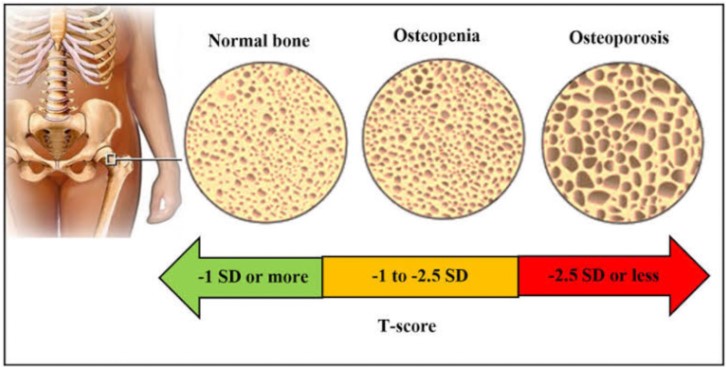Bone Health and Osteoporosis
Our Mission
At UTHealth Houston Bone Health Clinic, our mission is to strengthen bones, prevent fractures, and improve lives through expert, personalized care for osteoporosis and other bone conditions, while integrating treatment, nutrition, and exercise programs to achieve optimal outcomes.
Understanding Osteoporosis
The term osteoporosis originates from Greek roots meaning “porous bone.” Osteoporosis is a progressive disease that weakens the bones and increases the risk of fractures. It is a silent disease as it progresses without noticeable symptoms or pain until a fracture occurs.
Primary osteoporosis results from age-related bone loss influenced by:

-
Age
-
Genetic factors
-
Sex (women are more susceptible)
-
Hormones
-
Nutrition
-
Physical activity or weight-bearing exercise
-
Lifestyle factors
Secondary osteoporosis occurs when an underlying medical condition or medication causes low bone mineral density (BMD), thereby increasing the risk of fractures.

-
54 million Americans have low bone density.
-
1 in 2 women and 1 in 5 men over age 50 sustain a fragility fracture.
-
A woman’s risk of breaking a hip equals her combined risk of breast, uterine, and ovarian cancer.
-
More than 20% of patients die within one year after a hip fracture.
-
With proper evaluation, diagnosis, and treatment, healthcare providers can slow or even reverse osteoporosis.
Our Approach
When you visit our providers, we will perform a comprehensive evaluation of your bone health that includes:
-
Reviewing your bone density scan – please bring any previous DXA scans on a CD if possible. If you have never had one, we will arrange for an imaging center near you to perform the scan.
-
Reviewing your lab results to evaluate metabolic, endocrine, or nutritional issues. If you have recent lab work from another provider, please bring it to your visit.
-
Recording your medical and surgical history
-
Documenting your fracture history
-
Assessing your current and past medications that could affect bone health
-
Conducting a fall risk assessment

Expert Leadership and Team
The UTHealth Houston Bone Health Clinic is overseen by Eric Klineberg, MD, and provides clinical care by Christina Yazdani, PA-C, Jessica Varghese, PA-C, and Maura K. Leo, NP. Together, they develop individualized care plans based on bone density testing, laboratory evaluations, and comprehensive risk assessments, delivering tailored treatment that meets each patient’s specific bone health needs.
Treatment decisions are individualized and should be made in consultation with a UTHealth Houston provider.
